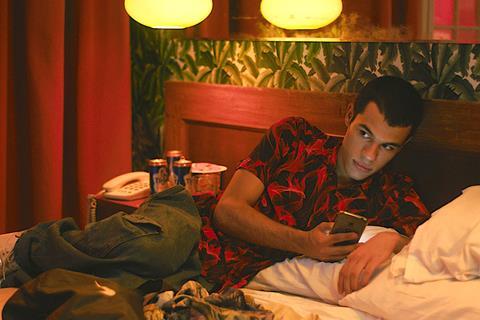A young man abandoned by his parents turns to sex work on the streets of Sao Paolo in this upbeat Critics Week title

Dir: Marcelo Caetano. Brazil/France/Netherlands. 2024. 106mins
A tenderhearted, quietly affirmative take on a teenage boy’s search for family that is largely set on the mean streets of Sao Paolo, Baby can be defined by the terrific job it does in eking out gentleness from the most unexpected of places. Despite some flaws, Marcelo Caetano’s follow-up to 2017’s well-reviewed Body Electric is a fine homage to the city and the people who struggle to survive in it.
A resolutely upbeat message always comes through
While it would be easy to characterise Baby as LGBTQ+ cinema, those concerns are woven elegantly into its wider human story about love, loss, and social mobility. The film’s premiere in Critics’ Week looks set to be a platform for further festival play and onward travel; Vitrine Filmes will release in Brazil, and Dark Star Pictures and Uncork’d Entertainment secured North American rights ahead of its Cannes debut.
Wide-eyed innocent Wellington (Joao Pedro Mariano) is released after spending nearly two years in a juvenile detention centre for a crime which remains undefined. On learning that his parents have simply upped and disappeared without trace, Wellington falls in with some old friends, a group of street performers, but his life really changes when he hooks up with 42 year-old Ronaldo (Ricardo Teodoro) outside a porn cinema. The fascinatingly fluid relationship between them – part sexual, part father-son, and part sex worker/manager – is the film’s emotional core.
Wellington’s initiation as a sex worker under Ronaldo’s management is initially troubled but he soon takes to it, renaming himself ‘Baby’ when Ronaldo tells him to stop acting like one following a humiliation at the hands of a client. The script’s empathetic urge is to find the human element in every character, even in Baby’s clients, who we meet only fleetingly: one memorable sequence with an overweight man starts out looking like hard-core porn but ends up surprisingly tender.
Ronaldo introduces Wellington to Priscila (Ana Flavia Cavalcanti), the mother of his child, who is now living with her girlfriend Jana (Bruna Linzmeyer): one of the striking things about the film is the open sexuality of many of its characters, which is taken as understood. This means that new kinds of families can be formed – a theme that Caetano also expored in Body Electric. As one of Baby’s lovers, the older Alexandre (Marcelo Varzea) wearily points out, in this regard Baby’s generation is much luckier than his, liberated from the repressive taboos of years ago.
Yet idyll-smashing trouble is just around the corner in the form of Torres (Luiz Bertazzo), a drug dealer higher up the chain who wants Wellington for himself. T
Despite the title, this is as much Ronaldo’s story – something which affords the possibility of greater nuance than simply a teenager trying to find his feet in a tricky world. As Baby becomes more ambitious and starts to slip away, the older man’s slow decline is grippingly charted by Teodoro. Other performances are solid, depicting a wide range of characters that represent a portrait of San Paolo society from bottom to top, from backstreet porn cinemas and saunas to Alexandre’s extensive suburban home. At least briefly, Baby has made it all the way.
Time is always made to highlight the city, via often strikingly framed, crisply shot images – though DPs Joana Luz and Pedro Sotero’s fondness for crane shots which then zoom in on a particular feature feels a bit retro. (They have a particular liking for the city’s tacky but charming shop fronts, particularly hair salons.) Similarly, one final polish of the script might have been a good idea. If, at one point, Baby seeks to avoid arrest by telling tells the cops that his father was a police officer, why didn’t he try the same strategy first time around and perhaps avoid two years of lockup?
Despite this, a resolutely upbeat message always comes through. However dark matters may seem, Caetano seems to want to tell us, there’s always a bit of good to be found in people.
Production companies: Cup Filmes, Plateau Produções, Still Moving, Circe, Kaap Holland Fllm, Desbun Filmes
International sales: M-Appeal sales@m-appeal.com
Producers: Ivan Melo, Roberto Tibirica, Juliette Lepoutre, Pierre Menahem, Stienette Bookslopper, John Baars, Marcelo Caetano
Screenplay: Marcelo Caetano, Gabriel Domingues
Cinematography: Joana Luz, Pedro Sotero
Production design: Thales Junqueira
Editing: Fabian Remy
Music: Bruno Prado, Cae Rolfsen
Main cast: Joao Pedro Mariano, Ricardo Teodoro, Ana Flavia Cavalcanti, Bruna Linzmeyer, Luiz Bertazzo
























